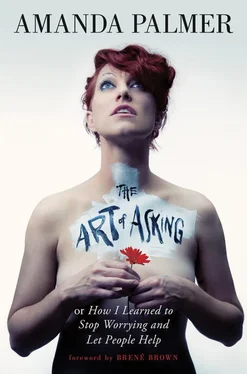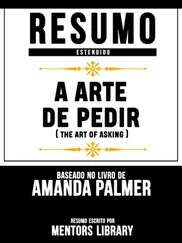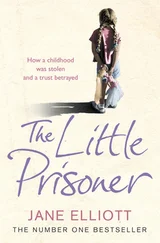And the butcher stops and winds his watch
And lays their lives down on the block
He raises up his hatchet
And the big hand strikes a compromise
Wait, we’ll trade you
Wait
Please just one more day
And then we’ll go with
No complaining…
No complaining…
No complaining…
Stop
Come…
And they’re cutting
And they’re cutting
And I think that I know
And they’re gutting
And they’re gutting
And I think that I know
And it’s beating
Look, it’s beating
And I don’t want to know
And it’s beating
Look, it’s still beating
God, I don’t want to know
And killing things is not so hard
It’s hurting that’s the hardest part
And when the wizard gets to me
I’m asking for a smaller heart
And if he tells me no
I’ll hold my breath until I hit the floor
Eventually I know I’m doomed
To get what I am asking for
Now my heart is exactly the size
Of a six-sided die cut in half
Made of ruby red stained glass
Can I knock you unconscious as long as I promise
I’ll love you and I’ll make you laugh?
Now my heart is exactly the size
Of a six-sided die cut in half
Made of ruby red stained glass
Can I knock you unconscious as long as I promise
I’ll love you and I’ll make you laugh?
—from
Theatre Is Evil , 2012
For most of human history, musicians and artists have been part of the village, accessing one another freely. They’ve been healers, listeners, mind-openers—in touch with the community, not untouchable stars on screens and behind barricades. I grew up believing that the distance of “real” stardom was glamorous. But in truth, feeling love from a distance is just lonely. Maybe even worse than no love at all, because it feels so unnatural.
The Internet has shaken things up in this regard and brought us, in some ways, full circle: we’re back around the fireside, albeit sometimes using our smartphones. The sorts of connections I make with people on Twitter and on my blog are real, honest, and loving. I’m able to reach safely into people’s heads and hearts, allow them to reach back into mine, and—most importantly—give them a place to reach into each other.
• • •
This morning, as I was getting ready to sit down and write this book, I popped onto Twitter and:
• I shared a news link about nine people who had been killed by a nineteen-year-old college student in Santa Barbara.
• I posted a live clip of one of my friend Mali’s songs and gave a shout-out to the West Coast fanbase to see if anybody could couch-host her or help her fill in some tour dates.
• I sent an old blog link to a fan who’d asked about some controversial lyrics I’d written years before.
• I told Neil, who was in Europe for his mother’s birthday, that I loved him.
• I encouraged anybody in the New York area to go see my friend Andrew O’Neill doing standup in Brooklyn.
• I looked at and shared a beautiful calligraphy-based painting by a kid in Brazil that was based on some Dresden Dolls lyrics.
• I reposted a link to the piece that Neil wrote about the trip he took last week to a refugee camp in Jordan.
• I shared the link to a school-project video some girls from Thailand had made about my Kickstarter.
• I asked for some book help as I tried to conjure up a good two-way megaphone metaphor (lots of people suggested cans and string, which was perfect). I eventually edited that section out of the book, but whatever. I used it here. Hooray!
• I pointed out that my last record producer, John Congleton, just joined Twitter. He twittered back and posted a photo of boobs.
• I asked for everybody to wish me luck as I started my ten-hour writing day. Ksenia, a Russian author I know on Twitter, offered me an encouraging bowl of virtual borscht. It’s a daily joke.
and
• I told two people I loved them and gave them each a Twitter hug ((((((()))))))). Just because they asked.
This all happened in fifteen minutes, the time it took me to order and drink my morning espresso and eat a croissant in the corner café. It’s not my job. It’s my life. It’s me.
I have over one million Twitter followers. As I ate my croissant, I chatted in real-time 140-character chunks, and a few hundred people posted responses to the things I’d just shared. I scanned all their messages and publicly discussed a few issues—personal, emotional, and political—with a few friends and strangers. I probably twittered about twenty times. I walked back to my apartment. By the time I got there, a few hundred more tweets had flowed in. I looked them over before I settled down to write, and was pleased to see a wave of thankful messages from the people whose artwork and photos I’d shared, a few 140-character pom-pom waves wishing me luck with the upcoming writing day, and a variety of other conversations and connections bobbing along in the wake of my fifteen-minute Twitter flurry.
This is a normal morning.
• • •
I asked my blog readers a question.
WHAT DO YOU WISH YOU’D ASKED FOR?
There were thousands of responses, and the overwhelming majority were variations on this:
I wish I’d asked for help .
One girl wrote:
I was born legally blind to a rural family that didn’t know how to deal with disability, but wasn’t going to give up on me either. I was raised with the best of intentions, but ultimately I grew up as a mixture between a cherished porcelain doll for display and a feral dog let to run wild. I’m twenty-four and I’ve spent all of my late adolescence and early adulthood reteaching myself simple day-to-day life skills (using an oven, cleaning a toilet)… I wish I’d asked for independence .
She wishes she’d asked people to help her by not helping.
It’s the same thing, isn’t it?
I was comparing notes with my older sister Alyson one night, over wine, right around the time I was also struggling with a marriage-and-money freak-attack. She’s a scientist, and I’ve never totally been able to grasp what she does. Stuff with genetics, gene sequencing, finding cures for rare forms of cancer, and other simple things like that. She experiments on fish in her work, and I usually lose the plot a few seconds after she starts explaining what she does. I can’t stop worrying about the fish.
She and her new husband, like me and Neil, had been keeping their finances more or less separate since getting together. But also, like me and Neil, some things had merged; she’d ditched her apartment and moved into his flat. She had her upstanding position at the university, he had his freelancing tech job, and life was good—but she was about to come up for tenure. She wasn’t confident she was going to get it, and her husband had offered to support her so she could take time off to look for a new job, go back to school, or even spend a few months communing with nature and finding herself. She couldn’t stand the thought of it, the shame of it. She hadn’t taken more than a few days’ vacation in twenty years.
All my friends think I’m crazy , she said.
All MY friends think I’M crazy! I said.
What the fuck happened to us? I asked. Why are we so weird?
I don’t know , she said. Our self-sufficient, breadwinning mother? Our New England upbringing? Hangover from the witch-burning Puritans? Society as a whole?
Читать дальше












